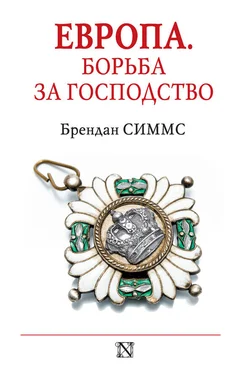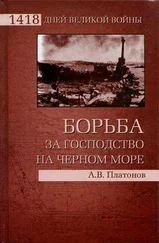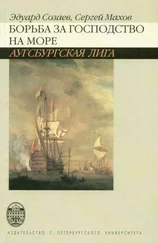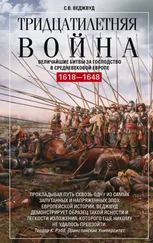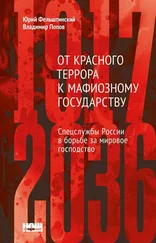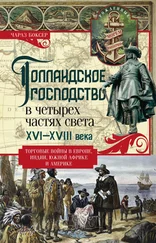Ernst Wangermann, Die Waffen der Publizität. Zum Funktionswandel der politischen Literatur unter Joseph 11. (Vienna, 2004), pp. 168–84.
Karl Härter, ‘Möglichkeiten und Grenzen der Reichspolitik Russlands als Garantiemacht des Teschener Friedens (1778–1803)’, in Claus Scharf (ed.), Katharina II., Rußland und Europa. Beiträge zur internationalen Forschung. Veröffentlichungen des Instituts für Europäische Geschichte, Supplement 45 (Mainz, 2001), pp. 133–81.
Hugh Ragsdale, ‘Evaluating the traditions of Russian aggression: Catherine II and the Greek Project’, Slavonic and East European Review, 66 (1988), pp. 91–117, especially pp. 95–6.
Quoted in Virginia H. Aksan, Ottoman wars 1700–1870. An empire besieged (Harlow, 2007), p. 161.
Quoted in Karl A. Roider, Austria’s Eastern Question, 1700–1790 (Princeton, 1982), p. 180.
Alexander Hamilton, Federalist Paper no. 34, 5.1.1788, in J. R. Pole (ed.), The Federalist. Alexander Hamilton, James Madison, John Jay (Indianapolis and Cambridge, 2005), p. 178.
James R. Sofka, ‘The Jeffersonian idea of national security. Commerce, the Atlantic balance of power, and the Barbary War, 1786–1805’, Diplomatic History, 21 (1997), pp. 519–44, especially pp. 519, 522 and 527.
Quoted in Doris A. Graber, Public opinion, the president, and foreign policy. Four case studies from the formative years (New York, Chicago etc., 1968), p. 133.
Deborah Allen, ‘Acquiring “knowledge of our own continent”: geopolitics, science, and Jeffersonian geography, 1783–1803’, Journal of American Studies, 40 (2006), pp. 205–32 (Jay is quoted on p. 216). For the importance of the west see François FÜrstenberg, ‘The significance of the trans – Appalachian Frontier in Atlantic history, c.1754–1815’, American Historical Review, 113 (2008), pp. 647–77.
Alexander Hamilton, Federalist Paper no. 25, 21.12.1787, in Pole (ed.), Federalist, p. 133.
Federalist Paper no. 7, 17.11.1787, in Pole (ed.), Federalist, pp. 28–9.
О страхе колонистов перед расколом и повторением опыта итальянских городов-государств: David C. Hendrickson, Peace pact. The lost world of the American founding (Lawrence, Kan., 2003), p. 63.
Federalist Paper no. 8, 20.11.1787, in Pole (ed.), Federalist, p. 37.
Federalist Paper no. 19, 8.12.1787, in Pole (ed.), Federalist, pp. 99–102. For the impact of the Polish partition on the constitutional convention see Frederick W. Marks, Independence on trial. Foreign affairs and the making of the constitution (Baton Rouge, 1973), pp. 3–51, especially p. 33.
Federalist Paper no. 5, 10.11.1787, in Pole (ed.), Federalist, pp. 17–18.
George William van Cleve, A slaveholders’ union. Slavery, politics, and the constitution in the early American Republic (Chicago and London, 2010), p. 9.
Значимость международного соперничества для конституции: Michael Schwarz, ‘The great divergence reconsidered. Hamilton, Madison, and U. S. – British relations, 1783–89’, Journal of the Early Republic, 27 (2007), pp. 407–36, especially pp. 419–21.
Quoted in Doyle, Aristocracy and its enemies, p. 99. See also Markus Hünemörder, The Society of the Cincinnati. Conspiracy and distrust in early America (New York and Oxford, 2006).
Roy Weatherup, ‘Standing armies and armed citizens: an historical analysis of the Second Amendment’, Hastings Constitutional Law Quarterly, 2 (1975), pp. 961–1001, especially p. 995.
Wolfgang Burgdorf, Reichskonstitution und Nation. Verfassungsreformprojekte für das Heilige Römische Reich Deutscher Nation im politischen Schrifttum von 1648 bis 1806 (Mainz, 1998), pp. 328–35.
Munro Price, ‘The Dutch Affair and the fall of the ancien régime, 1784–1787’, Historical Journal, 38 (1995), pp. 875–905 (quotation p. 904).
Своим представлением о взаимосвязи дипломатического упадка ancien régime и началом французской революции я в немалой степени обязан работе: Gary J. Savage, ‘The French Revolution and the secret du roi . Diplomatic tradition, foreign policy and political culture in later eighteenth-century France (1756–1792)’ (unpublished Ph.D. dissertation, University of Cambridge, 2005).
Thomas Kaiser, ‘Who’s afraid of Marie-Antoinette? Diplomacy, Austrophobia and the Queen’, French History, 14, 3 (2000), pp. 241–71.
Quoted in Price, Vergennes, p. 234.
Montmorin is quoted in Jeremy J. Whiteman, Reform, revolution and French global policy, 1787–1791 (Aldershot, 2003), p. 103.
Munro Price, ‘The court nobility and the origins of the French Revolution’, in H. Scott and B. Simms (eds.), Cultures of power in Europe during the Long Eighteenth Century (Cambridge, 2007), pp. 278–9.
Chapter 2 of the Cahiers, quoted in John Hall Stewart (ed.), A documentary survey of the French Revolution (New York, 1951), p. 59.
Quotation in Stone, Genesis of the French Revolution, p. 207.
David A. Bell, The cult of the nation in France. Inventing nationalism, 1680–1800 (Cambridge, Mass., and London, 2001), pp. 14–17 and passim (Sieyes is quoted on p. 14).
Quoted in Michael Hochedlinger, ‘Who’s afraid of the French Revolution? Austrian foreign policy and the European crisis, 1787–1797’, German History, 21, 3 (2003), pp. 293–318 (quotation p. 303).
Reflections on the Revolution in France, in Paul Langford (ed.), The writings and speeches of Edmund Burke. Vol. VIII: The French Revolution, 1790–1794 (Oxford, 1989), pp. 131 and 60.
Richard Bourke, ‘Edmund Burke and international conflict’, in Ian Hall and Lisa Hill (eds.), British international thinkers from Hobbes to Namier (Basingstoke, 2009), pp. 91–116.
P. J. Marshall and John A. Woods (eds.), The correspondence of Edmund Burke. Vol. VII: January 1792–August 1794 (Cambridge, 1968), p. 383; R. B. McDowell (ed.), The writings and speeches of Edmund Burke. Vol. IX: I The Revolutionary War. II Ireland (Oxford, 1991), pp. 195 and 250 (vicinage); Brendan Simms, ‘“A false principle in the Law of Nations”. Burke, state sovereignty, [German] liberty, and intervention in the age of Westphalia’, in Brendan Simms and D. J. B. Trim (eds.), Humanitarian intervention. A history (Cambridge, 2011), p. 110.
Quoted in T. C. W. Blanning, The origins of the French Revolutionary Wars (Harlow, 1986), p. 132.
Horst Möller, ‘Primat der Aussenpolitik: Preussen und die französische Revolution, 1789–1795’, in Jürgen Voss (ed.), Deutschland und die französische Revolution (Munich, 1983), pp. 65–81.
Читать дальше
Конец ознакомительного отрывка
Купить книгу
